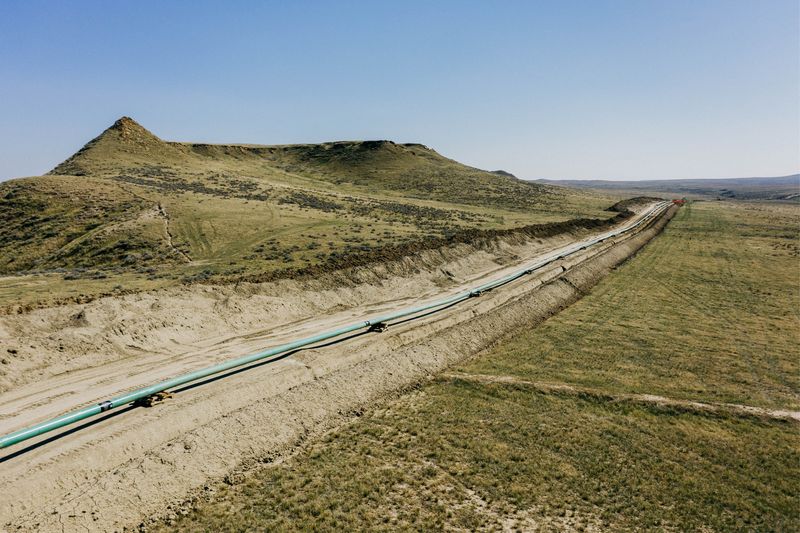By Nate Raymond
(Reuters) -Montana's top court on Wednesday appeared open to upholding a landmark ruling that found the state violated the rights of young people to a healthy environment by barring regulators from considering how new fossil fuel projects could affect climate change.
Several justices on the seven-member Montana Supreme Court appeared skeptical of the Republican-led state's contention that the 16 young people in the case lacked legal standing to challenge a restriction on agencies' ability to consider greenhouse gas emissions when issuing permits.
In urging the justices to overturn District Court Judge Kathy Seeley's 2023 ruling, Mark Stermitz, a lawyer for the state, said even if human factors contributed to climate change, "that doesn't mean that we feel that this global problem can be influenced in any way by a state district court judge in Montana."
Montana Supreme Court Justice Laurie McKinnon, though, said the plaintiffs who filed the case in 2020 wanted to ensure the agencies could at least consider the impact of emissions, a potential "first step" to objecting to potential permits.
"They can't even get there right now with that limitation," she said.
Roger Sullivan, a lawyer for the plaintiffs, urged the justices to uphold Seeley's ruling blocking the restriction. He said it "closes the eyes of Montana's environmental agencies to the most serious environmental crisis Montana has ever experienced, the climate crisis."
In her ruling, Seeley found the young people had a fundamental right to a clean and healthful environment under a 1972 amendment to Montana's constitution requiring the state to protect and improve the environment.

The closely watched case was the first such challenge by young environmental activists to go to trial in the U.S. These suits object to state and federal policies that they say encourage or allow the extraction and burning of fossil fuels and violate their rights under U.S. or state constitutions.
While some of those cases have faltered, the youth activists last month scored a major victory when Hawaii agreed as part of a first-in-the-nation settlement to take action to decarbonize its transportation system by 2045.